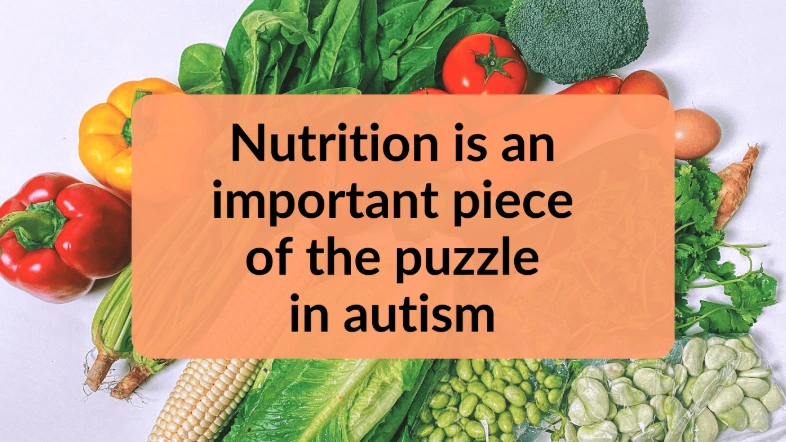
Understanding the link between nutrition and autism is essential for supporting growth, gut health, behaviour, and learning. Individuals on the autism spectrum often experience unique challenges when it comes to eating, digestion, and nutrient absorption. Tailored nutritional support can make a significant difference in both short-term comfort and long-term health outcomes.
Nutrition can be a little more complex for individuals on the autism spectrum. Many people with autism have limited food preferences or are selective eaters, often due to sensory sensitivities around taste, texture, or smell. These sensitivities may cause discomfort or distress when exposed to certain foods, leading to a highly restricted diet.
This can result in a low intake of important nutrients like:
These nutrients are essential for immune function, bone health, mood regulation, energy production, and cognitive development. Over time, nutritional deficiencies can affect learning, sleep quality, focus, and physical growth.
Gastrointestinal (GI) issues are also very common in individuals with autism. Conditions like reflux, irritable bowel syndrome (IBS), and especially constipation are frequently reported and may significantly impact comfort, appetite, and food variety.
Constipation can be influenced by multiple factors, such as:
Constipation can also make eating less enjoyable, increase irritability, and interfere with learning or engagement. Addressing constipation holistically often involves increasing high-fibre foods, reviewing medications, boosting fluid intake, and exploring gentle movement or sensory-safe activities that encourage digestion.
It’s also worth noting that some individuals may experience differences in interoception in the ability to sense internal body signals. This can affect awareness of:
If a child or adult struggles to recognise when they are hungry, thirsty, or full, they may under-eat, overeat, or miss key hydration cues. These challenges are not behavioural but neurological, and require a patient, sensory-aware nutrition approach.
Whether you’re seeking help with constipation, extreme pickiness, weight changes, or you simply want your child to eat a wider range of foods, Holistic ME can help.
Our feeding therapy programs, dietitian-led meal strategies, and collaborative support model are designed to meet individuals exactly where they are, with no judgment and lots of patience.
Food sensitivities or intolerances can add another layer of complexity. Some individuals may have:
If these foods are eliminated without replacing them with suitable, nutrient-dense alternatives, nutritional gaps can develop over time. This may lead to fatigue, poor growth, weakened immunity, or behaviour changes.
Our team at Holistic ME helps families navigate these challenges with realistic, sensory-aware meal planning that meets medical needs while respecting personal food preferences.
Medication is another important consideration. Many individuals with autism or ADHD are prescribed medications that can directly impact appetite, digestion, or nutrient absorption.
For example:
Tracking growth, appetite trends, and nutrient levels with the help of a dietitian can ensure your child or loved one continues to thrive while receiving the care they need.
The good news is that with the right support, these challenges can be managed. A dietitian experienced in working with individuals on the spectrum can help address:
At Holistic ME, we provide tailored, compassionate care through our autism and neurodiversity-informed nutrition programs. We understand that every person is different and that building trust, safety, and flexibility is key to success.